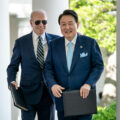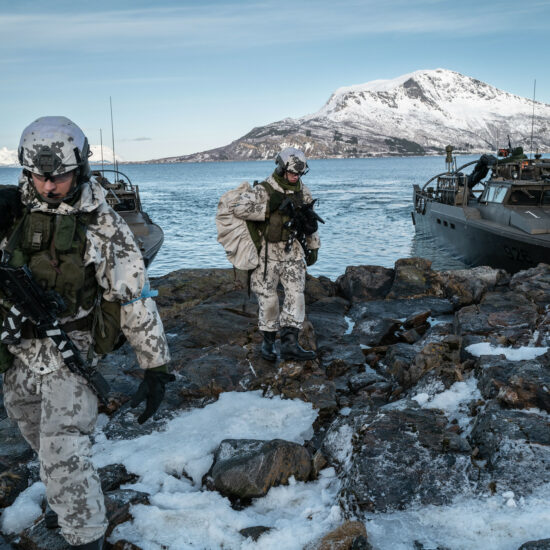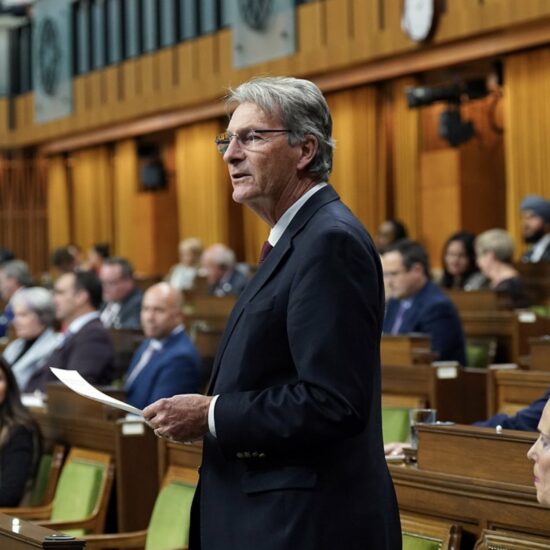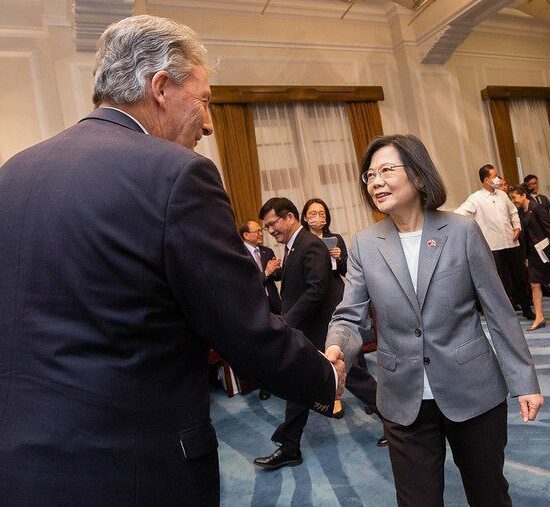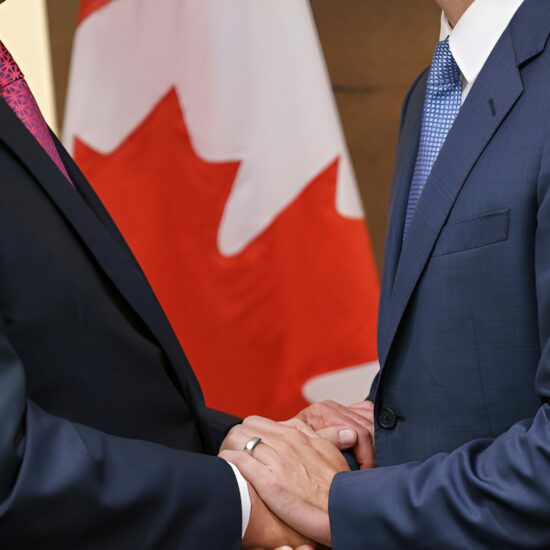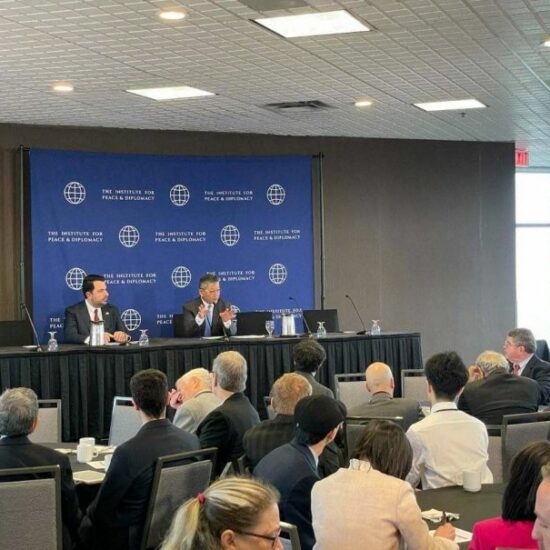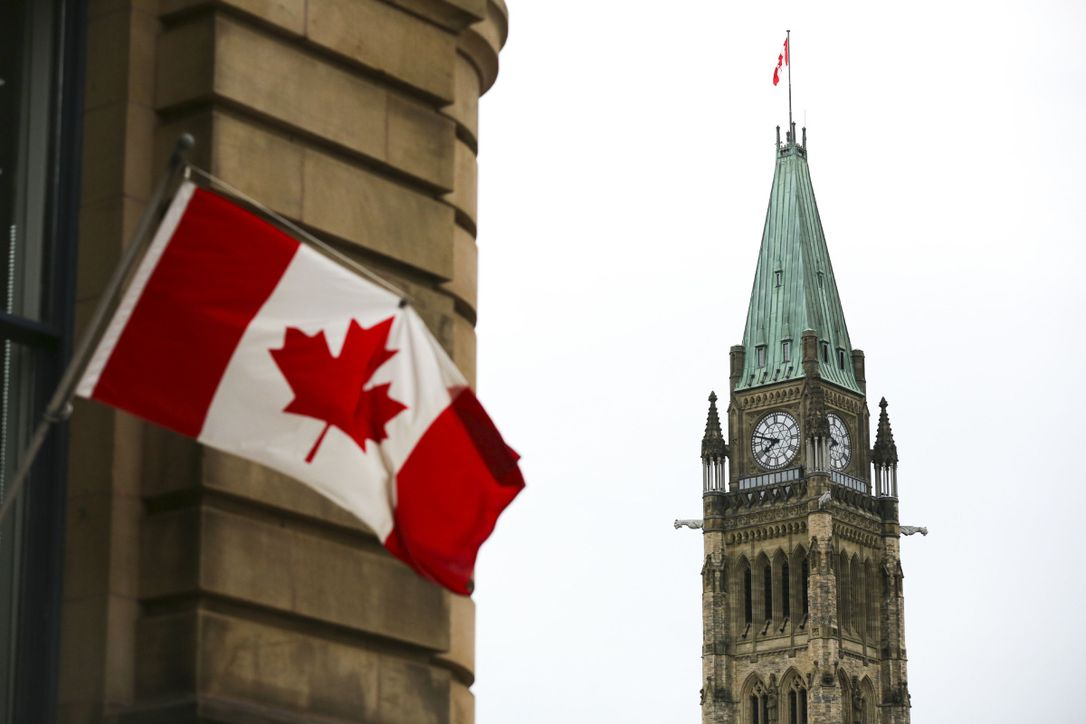
Canada is a middle power with a finite amount of ‘diplomatic capital’ to expend. Thus, Canada’s actions to provide a progressive alternative model of international diplomacy must be achieved through soft power, multilateralism, and foresight.
By Amadeus Narbutt
The 2019 Canadian federal election was disappointingly devoid of any discussion of foreign policy. The one substantive debate that was scheduled on the topic of foreign policy was canceled because Prime Minister Justin Trudeau decided not to attend. The New Democratic Party’s ‘New Deal for People’ policy platform included only a brief section about foreign policy goals, which highlighted the need to increase international development assistance to the United Nations target of 0.7% of GDP. However, only one significant foreign policy proposal made headlines during election coverage: the Conservative Party’s reactionary promise to lower the Canadian government’s already historically low foreign aid contributions.
Such substance-free discussion of Canada’s place in the world among Canada’s political leadership is doubly disappointing at a time when the world stage is facing multiple tumultuous and existential crises. The Bulletin of Atomic Scientists (BOAS) – which publishes an annual doomsday countdown clock to represent the threat of global catastrophe – has evaluated the current year as the most dangerous year since they began publishing in 1945. In 1968, when regional wars threatened global stability, the clock dropped from ‘12 minutes to midnight’ to 7. When the Cold War ended, the countdown eased up to 17 minutes. In 2019, with the rise of the existential threat of climate change, ‘2 minutes to midnight’ was declared the ‘new abnormal’. Currently the clock is set at 100 seconds to midnight.
In addition to the threat of climate extinction and nuclear annihilation that the BOAS outlines, the world faces the threat of climate-change induced mass migration and its resulting instability, escalating protests from France to Hong Kong and Latin America, threats of viral epidemics, the slow collapse of the JCPOA, disinformation and cyberwarfare, and the rise of China as a global superpower.
During times like these Canada cannot afford to simply sit it out. If Canada would like to champion a progressive and transformative foreign policy, it must present a vision that takes such an endeavour seriously; mere sprinklings of dovish rhetoric and refusal to discuss foreign policy during an election will not suffice. Further, since the likely leader of the Conservative Party is Peter MacKay – who has considerable foreign policy experience having served as Minister of Foreign Affairs and Minister of National Defence under Harper – parties who wish to present an alternative to Conservative leadership must present a credible, bold, and forward-looking foreign policy to Canadians. Such a vision must respond with the aggressiveness these crises necessitate, but must also be based on a vision of Canada’s potential role as a global voice for peace.
Doing so requires a sober and realistic evaluation of Canada’s capacity to act; Canada is a middle power with a finite amount of ‘diplomatic capital’ to expend. Thus, Canada’s actions to provide a progressive alternative model of international diplomacy must be achieved through soft power, multilateralism, and foresight. In cases like climate cooperation, which due to the global nature of the problem necessarily requires a large-scale multilateral solution, Canada should be a ‘pace-setter’ who leads by example domestically and then facilitates further international cooperation through multilateral bodies. In cases like conflict mediation, Canada requires no permission from other governments to assert itself as a neutral third-party mediator of peace talks, a reputation which Norway has built for itself over many decades. A progressive foreign policy that is dynamic and ambitious can tackle the ‘governance gaps’ of international forums and treaties in hopes of averting further breakdowns of global governance.
Climate
The impending threat of climate change is increasingly making climate an area of diplomacy and conflict. While climate change requires a globally cooperative solution to transition to renewable energy production and net-zero carbon emissions, the damage that has already been caused by decades of irresponsible greenhouse gas emissions will be a challenge. The Intergovernmental Panel on Climate Change’s (IPCC) Special Report makes clear that past emissions have already warmed the climate 1.0°C above pre-industrial levels. The Paris Accord’s goal of limiting global warming to 1.5°C is unlikely to occur. What does this mean for foreign policy? Research from the National Academy of Sciences states that for every 1.0°C of warming, we can expect:
- 5-10% changes in precipitation, which could exacerbate drought and famine;
- 3-10% increases in the amount of rain falling during major storms, making flooding and other weather-related disasters more damaging;
- 5-10% changes in streamflow across river basins, which will exacerbate already dangerous tensions over trans-boundary water resources;
- 15% decreases in average sea ice coverage in the Arctic Ocean, opening the door to escalatory tensions over free passage and resources in Arctic waters;
- 5-15% reduction in the yields of crops, threatening food security; and
- 200-400% increases in the area burned by wildfire in parts of the western United States.
It is crucial that as these crises worsen, they can be dealt with through already institutionalized mechanisms, rather than reactionarily by unilateral action. One can imagine how a surge in climate migrants from one particularly large disaster could lead to the closing of borders and thus increased inter-state tensions. The United Nations Human Rights Committee recently ruled that deporting climate migrants may violate their right to life, which is a promising development. However, the ruling is non-binding. Since Canada’s sway over many countries that have recently pulled out of the Global Compact for Safe, Orderly, and Regular Migration is likely minimal, a progressive Canadian foreign policy should aim to save the UN’s floundering agreement through close cooperation with the remaining members of the compact. Even if many larger states like Brazil or the United States are not participating in the compact, continuing and broadening its powers is crucial so that some institutionalized mechanism for facilitating irregular climate migration exists at all.
Similar strategies must be applied to other collective action problems surrounding climate change. For example, the Paris Accord is insufficient and has already seen the unfortunate withdrawal of the United States, but regardless, a progressive foreign policy must persist and fight to improve the Paris Accord and transition it towards a legally binding agreement.

Catherine McKenna MP, Minister of Environment and Climate Change, Canada at Climate Change 2017/Chatham HouseAn important place where Canada can make headway is through the pioneering of new international standards of shared water governance. As climate change exacerbates food insecurity, drought, and resource-based conflict, freshwater is going to become an increasingly fought over resource. The Stockholm International Water Institute (SIWI) reports that almost half of the world’s freshwater is situated in 276 river basins that cross a political border. In Africa, 90% of the continent’s freshwater exists in transboundary water resources. The potential for conflict over these resources, especially in water-scarce regions of the world is alarming, especially since about two-thirds of the 276 river basins that SIWI discusses do not have a cooperative management framework in place.
The potentiality of these conflicts should be preemptively addressed through the institutionalization of shared water resource management strategies. Whether this is achieved through the negotiation of individual treaties between states that share water resources or through a global water treaty will depend on the amount of diplomatic capital that Canada is able to expand in this area. However, the former seems more likely. Canada already experiences tensions with its American neighbour over freshwater diversion and requires serious work in managing its own domestic freshwater resources, particularly in Indigenous communities. But as the holder of one-fifth of the world’s freshwater, Canada is not only uniquely positioned to spearhead such an effort, but also uniquely interested in ensuring that freshwater does not become a resource that states are willing to war over.
Peacekeeping
A renewed Canadian foreign policy must take a clear accounting of the modern role of NATO, and how – if at all – Canada should reorient its foreign policy relationship to the anachronistic Cold War alliance. Especially under the unhinged leadership of President Trump, NATO’s role is being questioned more and more, leading French President Emmanuel Macron to state that NATO is undergoing ‘brain death’ and behaving as if it has schizophrenia. Canada must contend with this reality and the waning power of the United States on the world stage. As of yet, Prime Minister Trudeau – despite progressive rhetoric about returning Canada to its role as a global peacekeeper – has favoured NATO missions over UN missions. The Canadian reputation for peace-keeping was forged in 1956 when Lester B. Pearson proposed the first major UN peacekeeping mission in response to the Suez Crisis, which earned with the Nobel Peace Prize. Through the Cold War and the 1990s, Canadian peacekeeper contributions amounted to more than 3000 military personnel. As of 2020, Canadian contributions amount to a disappointing 44 personnel. While Canada also contributed air force assistance in the UN peacekeeping mission in Mali, this was a temporary engagement, and does not come close to making up the difference between Canada’s current involvement and its leadership in decades past.
A progressive Canadian foreign policy must depart from this new normal and reassert Canada’s role as a leader in UN peacekeeping operations. While exiting NATO may not be a realistic option (at least in the immediate term), Canada should reorient its foreign policy priorities towards UN missions over NATO engagements. Re-establishing Canada as a nation of peacekeepers not only makes strategic and ethical sense, but may buy Canada further diplomatic capital to use within the United Nations for the purposes of advancing other progressive ideals.
Beyond participating in UN missions, however, Canada has other means of reasserting its role as a global peacekeeper. Norway’s aforementioned reputation as a third-party conflict mediator is an example of the strategy that a progressive Canadian foreign policy could employ. Despite not even being in the G7, Norway has become a trusted third-party mediator in peace talks globally through the Norwegian Centre for Conflict Resolution (NOREF). A progressive Canadian foreign policy would endeavour to build a similar role for Canada as a state that not only engages in peacekeeping missions, but also facilitates less formalized peace efforts through resource provision and impartiality. This impartiality is crucial – and will be a challenge – as Norwegian diplomat Jan Egeland has stated that one of Norway’s comparative advantages in diplomacy was its small power status, lack of imperial history, and relative distance from US power. This gave it a legitimacy with groups that feared Western bias and imposition into peace negotiations. Given Canada’s ‘special relationship’ with the United States, attaining a similar image of impartiality and distance from American hegemony will be more difficult. However, a renewed Canadian focus on UN peacekeeping over NATO missions would help in this regard, and allow Canada to play a useful role in ameliorating conflict around the world.
Another avenue that Canada can pursue in search of peace is nuclear non-proliferation. Especially in light of recent tensions between the United States and Iran, this goal should be at the forefront of any progressive foreign policy agenda. There have long been efforts to declare the Middle East a nuclear weapons-free zone (NWFZ) in the United Nations General Assembly. While Canada has continued to vote for the original NWFZ proposal, Resolution 3263, Canada has repeatedly voted against putting such plans into action. Specifically, Canada has pointed to its relationship with Israel as the obstacle to supporting substantive actions towards the creation of a NWFZ in the Middle East, since enforcement of such a zone would require Israel to abandon its longstanding tradition of ‘nuclear ambiguity’ and advance towards disarmament. Canada’s vote against the resolution on this matter leaves it in a lonely camp populated only by the United State, Israel, and Micronesia. This vote does not assist in building Canada’s image as a state that is honestly advancing an agenda of peacekeeping. Nuclear disarmament should not be an area of disagreement; the Bulletin of Atomic Scientists’ warnings about the dangers of nuclear conflict must be taken seriously and a progressive Canadian foreign policy must pursue nuclear disarmament in the Middle East.
Peggy Mason, a former Canadian diplomat and disarmament expert, has written that in order for Canada to meet its legal obligations under Article IV of the Treaty on the Non-Proliferation of Nuclear Weapons it must absent itself from NATO’s nuclear doctrine and convince other NATO members to do the same. Thus, in terms of peacekeeping, Canada requires a change in diplomatic outlook; it must strike a balance between reorienting itself towards UN engagements while also retaining enough diplomatic capital with its NATO allies to create a seismic shift in NATO nuclear policy. Whether both are possible simultaneously is doubtful, specifically given the reactionary nature of NATO itself; it is an outdated relic of the American-led Cold War era, not a benign alliance of democracies who favour multilateralism and collective security. While a progressive Canadian foreign policy should strive for both, a long-term outlook about the prospects of continuing to hitch oneself to the declining American superpower suggests prioritizing the former.
Multilateralism
Nahlah Ayed, foreign correspondent for CBC writes that Canada “has historically made its biggest impact globally by working within multilateral organizations”, and with the current international order on such unstable footing, Canada should refocus its foreign policy towards a bold embrace of multilateralism. While Trudeau has been campaigning forcefully for a non-permanent seat on the UN Security Council, he faces tough competition. However, simply having a non-permanent seat on the Security Council does not provide the sort of change in international diplomacy that is required to handle the threats of climate change and nuclear conflict that have already been discussed. Rather, a progressive Canadian foreign policy should champion a fundamental reform of the Security Council.
The Security Council was formed based on a particular balance of world order at the time of its conception; this arrangement is neither relevant nor beneficial in the changing dynamics of global politics. The power, legitimacy, and capacity of the United Nations is a function of its membership’s willingness to grant it authority. Meaningful reform in the pursuit of a more participatory multilateralism will contribute to the development of a United Nations that is actually capable of confronting current global crises. This meaningful reform should begin at the Security Council, as it is perhaps the most unbalanced body of the UN.
Reform of the Security Council is a difficult and thorny process, one which Canada has attempted to champion in the past. Adam Chapnick, a scholar of Canadian defence studies, has written about Canada’s history trying to reform the Security Council through the latter half of the 20th century. He concludes that Global Affairs Canada’s reluctance to champion structural reform of the Security Council is understandable, as it requires a great deal of diplomatic capital and is bound to upset some allies. However, some reforms either at the structural or procedural level seem necessary. Ideally, a progressive Canadian foreign policy would lobby for expansion of the Security Council’s rotating regional seats in order to promote multilateral buy-in to UNSC authority as well as some significant changes to the often-abused veto power of the P5. While Canada is currently part of a group of 12 member-states called ‘Uniting for Consensus’ (UfC) which hopes to expand the UNSC, it neglects to tackle the question of veto power. This is understandable, as the P5 veto power is an extremely sensitive topic, but it is also at the root of much of the UNSC’s dysfunctionalism.
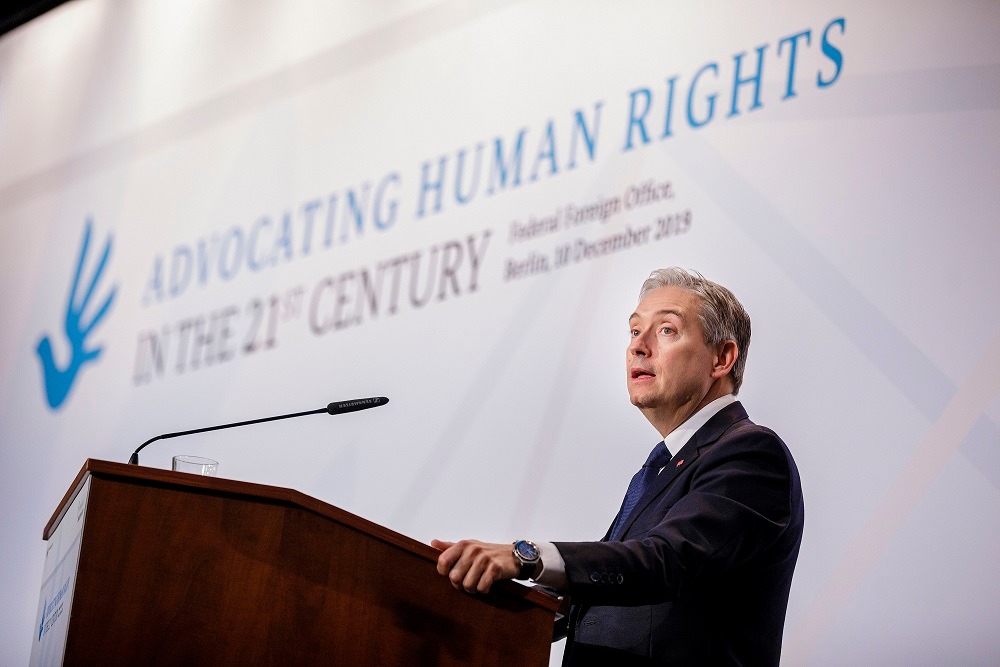
Foreign Minister Champagne reaffirms Canada’s commitment to multilateralism during the human rights conference in Berlin, December 2019 /GACWhatever the particular reform package is, what is crucial is that the UNSC is reformed in such a manner as to ensure that as the current rise of China, the decline of the US, and the reassertion of Russian power plays out, the international order is not left to the whims of great power politics. As with the aforementioned strategy towards climate conflict, the approach of a progressive Canadian foreign policy should be to preempt reckless escalation of tensions through the institutionalization of multilateral diplomatic forums. That must include the UNSC. Leaving the power of the veto in the hands of the P5 as China and the US collide will lead to either a complete breakdown of the UNSC’s functioning or its eventual irrelevance. Canada should champion a UNSC reform package that avoids either scenario.
Despite the US-Canadian ‘special relationship’, it is in Canada’s interest to facilitate America’s graceful transition from its role as the leader of the free world in the post-WW2 era to one of many multilateralist powers in a multipolar world who help enforce a rules-based international order. To do otherwise is to risk being dragged into the inevitable US-China conflict and a Cold War-style security competition for decades to come. A progressive Canadian foreign policy must have a long-term perspective on the realities of great power politics, and accept that China is going to play an increasingly dominant role on the world stage. Unless Canada would like China’s role in the 21st century to be as unilaterally hegemonic as the United States’ was in the 20th century, Canada must champion the reform of the UNSC into a truly multilateral body.
Conclusion
If progressives in Canada want to present a substantive and realistic foreign policy to Canadians during the next federal election, they will need to confront the tumultuous and dangerous state of the current international order. The topics laid out here highlight three priority areas for a progressive Canadian foreign policy: a cooperative strategy for addressing climate change that treats the crisis with the severity it warrants; a renewed focus on peacekeeping and nuclear disarmament; and a bold embrace of multilateralism that spearheads reform of the Security Council. These steps will be necessary to preserve the rules-based international order within which Canada has historically been most successful in actuating change. And even more importantly, they are the priorities that must be dealt with in order to address the most existential crises facing the world today.
However, there are other areas of foreign policy that are not addressed here which will undoubtedly need to be part of any progressive foreign policy agenda worth its salt. As progressives, the intertwined relationship of global politics and economic power are unavoidable. Progressives must reevaluate the efficacy and often neo-colonial nature of aid and development programs as they currently exist. The reckless use of sanctions as a diplomatic tool rather than as a weapon of last resort continues to force the most vulnerable around the world to bear the cost of global politics. International human rights standards for trans-national corporations must be standardized and enforced; Canada’s mining industry is particularly guilty here. The inclusion of these efforts will need to be balanced with the priorities outlined above.
The nature of diplomacy means that not all of these goals will be able to be realized, and those that may will not be realized in full. Progressives always lose when they compromise from the outset for fear of seeming too radical. Yet in a time as tumultuous and existentially threatened as this, what is radical: being bold or being complacent?

